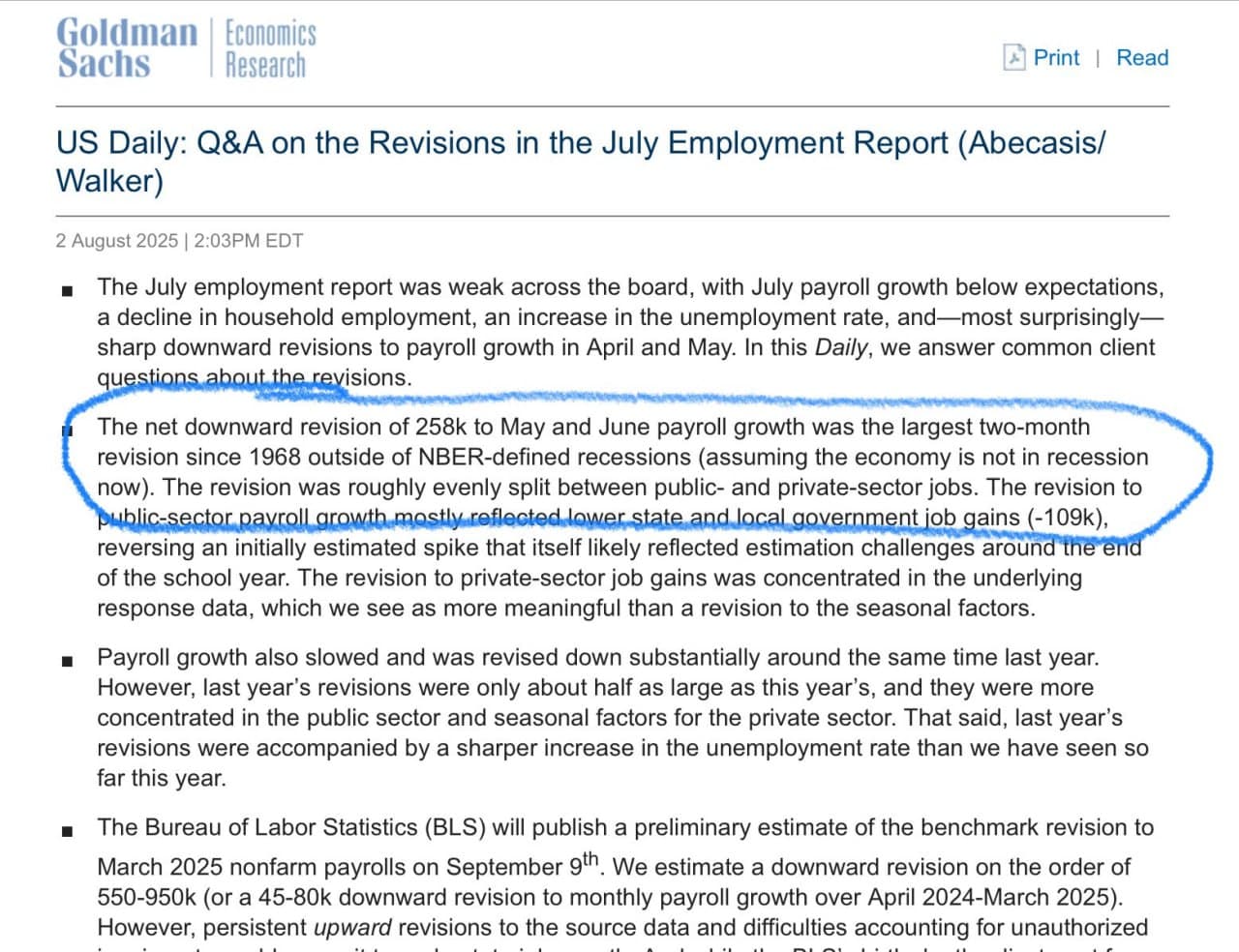Goldman Sachs Reports Historic Job Revisions; Anticipates More Shifts Ahead
In a striking revelation, Goldman Sachs has announced that the recent two-month job revisions are the largest seen outside of recessionary periods since 1968. This significant adjustment has raised eyebrows among economists and policymakers alike, as the financial giant predicts even more substantial revisions in the coming month. The implications of these changes could have far-reaching effects on the U.S. economy as it navigates the complexities of recovery and growth.
Background & Context
The job market is a crucial indicator of economic health, and revisions to employment data can signal shifts in trends and expectations. Goldman Sachs" recent analysis highlights that the latest adjustments to job figures have been unprecedented for a non-recessionary context, suggesting that previous estimates may have been significantly off the mark. This revelation comes at a time when the economy is still grappling with the aftermath of the COVID-19 pandemic and subsequent recovery efforts.
Historically, significant job revisions have typically occurred during economic downturns, making this recent trend particularly noteworthy. The revisions not only reflect changes in hiring practices but also indicate potential fluctuations in consumer confidence and spending. As the labor market evolves, understanding the reasons behind these adjustments becomes essential for stakeholders across various sectors.
Key Developments
Goldman Sachs" report indicates that the adjustments in job numbers are not merely statistical anomalies. The firm anticipates that the upcoming month will bring further revisions, which could redefine the current understanding of employment trends in the country. This forecast aligns with ongoing discussions among economists regarding the accuracy of labor market data, especially in light of the rapid changes seen in various industries.
In the context of these revisions, experts have pointed out that businesses may be struggling to keep pace with hiring amid ongoing economic uncertainties. The labor market has been characterized by a mismatch between available jobs and the skills of job seekers, complicating the landscape further. Goldman Sachs" insights suggest that these dynamics may prompt additional changes in job figures as businesses adjust their strategies to attract and retain talent.
Broader Impact
The ramifications of these job revisions extend beyond mere statistics. Analysts are concerned that such significant changes could influence monetary policy decisions by the Federal Reserve. A more accurate picture of employment could lead to adjustments in interest rates and other economic measures aimed at stabilizing growth. Furthermore, fluctuations in job data can impact consumer confidence, which is vital for sustained economic recovery.
Historically, large-scale job revisions have often preceded shifts in economic policy. For instance, during the late 1960s, similar trends contributed to a reevaluation of the Federal Reserve"s approach to inflation and employment. As policymakers consider the implications of the latest revisions, they must balance the need for economic stimulus with the realities of an evolving labor market.
What"s Next
Looking ahead, the anticipation of further job revisions presents both challenges and opportunities for the economy. Stakeholders, including businesses, policymakers, and job seekers, will need to stay informed about the evolving employment landscape. Goldman Sachs" predictions suggest that the coming months may reveal more about the resilience of the labor market and its ability to adapt to changing economic conditions.
Moreover, as previously reported, the political landscape is also undergoing significant shifts, with various developments influencing economic policy. For instance, recent developments in international relations could further complicate economic forecasts, underscoring the interconnectedness of global markets. As the situation unfolds, stakeholders will need to remain vigilant and adaptable.







![[Video] Gunfire between Iraqi security forces and Sadr militias in Baghdad](/_next/image?url=%2Fapi%2Fimage%2Fthumbnails%2Fthumbnail-1768343508874-4redb-thumbnail.jpg&w=3840&q=75)
